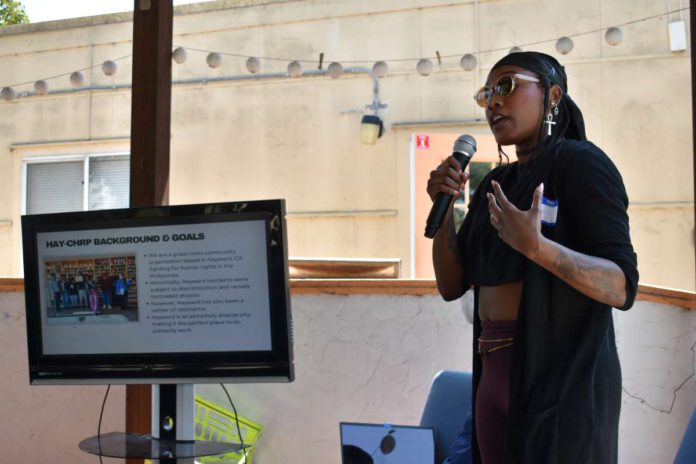Dozens of community activists and local stakeholders convened at Fremont’s St. Paul United Methodist Church on Sunday, June 22, to commemorate the soft launch of a new organization devoted to social justice.
The event marked the opening of the Hayward chapter of the Coalition for Human Rights in the Philippines (CHRP), a grassroots organization designed to spread awareness and to educate people on human rights issues occurring in the Philippines as well as their effects on the global community.
The event kicked off with a slideshow led by Hayward CHRP member Jamila Hayes which shed light on a series of issues affecting the Philippines. These include the use of martial law, targeting of political prisoners, destructive nickel mining on indigenous peoples’ land, and forced migration of Filipinos both in the Philippines and abroad.
“Now is an integral time to connect common struggles,” says Hayward CHRP leader J.P. Sanchez. “The U.S. government plays a huge role in the political and military unrest [in the Philippines]. It parallels issues like the Iraqi War, the Civil Rights Movement and the U.S. involvement in Vietnam.”
The presentation highlighted the polarizing administration of current Filipino President Ferdinand “BongBong” Marcos, Jr. Much like his father, Ferdinand Marcos, Sr., he has faced criticism for his policies concerning the use of martial law, contributing to his country’s foreign debt and his persecution of political opponents.
Hayward CHRP cited a report from left-wing Filipino watchdog group Karapatan, which states that Marcos, Jr., has incarcerated more than 745 political prisoners as of March 2025.
“Why might the United States want to keep the Philippines indebted to them?” was a question that Hayes posed to attendees.
“To keep them subservient,” chimed in a participant.
Another key talking point of the event was the situation regarding Chinese-American San Francisco native Brandon Lee. While campaigning for the rights of indigenous Filipinos and for environmental causes in 2019, Lee became a political target for then-Philippine President Rodrigo Duterte. Lee was shot four times by soldiers from the county’s 54th Infantry Battalion before being airlifted to safety.
Despite being left a quadriplegic from the attack, Lee has continued his advocacy in the United States while also demanding that American taxpayer dollars stop being used to fund the ongoing human rights abuses.
“His bravery to endure something like that and yet to still be able to continue is something I can’t fathom,” adds Hayes.
Despite Sunday’s event focusing on the Philippines, participants came from a variety of different cultural and racial backgrounds. For members such as Sanchez, this display of cross-cultural solidarity and intersectionality is a key component of what CHRP represents.
“You don’t have to be Filipino to care about human rights,” says Sanchez.
For more information on the International Coalition for Human Rights in the Philippines (ICHRP), including how to support/contact Hayward CHRP, visit linktr.ee/ichrpus.




